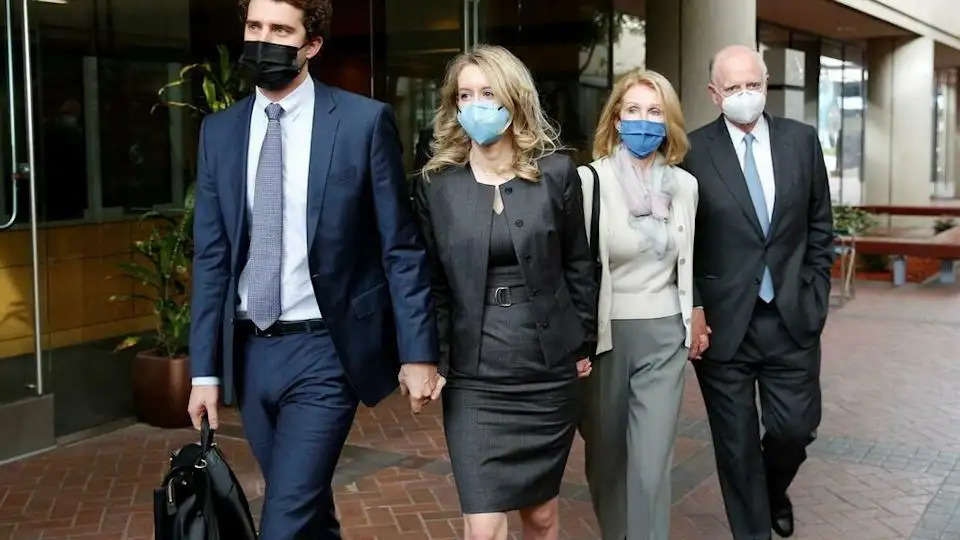In a fraud trial in the United States, a jury found Elizabeth Holmes, the founder of Theranos, guilty.

A US jury convicted Theranos founder Elizabeth Holmes guilty on four of 11 counts of conspiring to deceive investors in the blood testing business on Monday.
Holmes was found guilty of cheating three additional investors and conspiring to swindle them. She was found not guilty of three charges of cheating patients who paid for Theranos tests, as well as a conspiracy allegation. On three counts involving individual investors, the jury was unable to make a decision.
After the decision was read, Holmes, dressed in a grey suit jacket, appeared poised. A date for sentencing was not scheduled right away.
Prosecutors allege that between 2010 and 2015, Holmes, 37, defrauded private investors by telling them that Theranos' small machines could perform a variety of tests with just a few drops of blood from a finger prick. When US District Judge Edward Davila sentences her, she risks up to 80 years in jail, although she is expected to receive a considerably shorter sentence.
Holmes was also charged with deceiving patients regarding the accuracy of the tests, but he was found not guilty. Holmes will almost certainly file an appeal. After seven days of deliberation, the jury reached a decision.
After creating Theranos in 2003, Holmes rose to prominence in Silicon Valley. Forbes assessed her net worth at $4.5 billion in 2015.
The case has brought to light Theranos' ill-fated attempt to revolutionize laboratory testing. Prosecutors claim that the business secretly used Siemens-made conventional machines to do patients' tests. After the Wall Street Journal published a series of articles claiming that Theranos' gadgets were faulty and incorrect, the company went bankrupt.
In 2018, Holmes and Ramesh "Sunny" Balwani, Theranos' former chief operating officer, were indicted. She has denied nine counts of fraud and two counts of conspiracy. Balwani has also entered a not guilty plea and will face charges at a later date.
Jurors heard testimony from former Theranos employees who said they left the firm after witnessing difficulties with its technology during the trial, which began in September in San Jose, California. Investors testified that Holmes made false promises about Theranos, such as that the company's devices were being used by the US military in the field. Former patients also told jurors that if they had realized Theranos' tests were defective, they would not have used them.
Prosecutors claim that if Holmes had been honest with investors and patients, the company would not have received key money and income. "She chose deception over failure in business." At the start of closing statements, Assistant US Attorney Jeff Schenk remarked, "She chose to be dishonest." "Not only was the decision heartless, but it was also stupid."
At trial, Holmes testified that she never intended to deceive anyone and that Theranos' lab directors were in charge of test quality. Defense attorney Kevin Downey said in closing arguments that the evidence did not demonstrate Holmes was driven by a cash shortage at Theranos, but rather that she believed she was "creating a technology that would alter the world."
"You know how crooks flee at the first hint of difficulty," Downey added, but Holmes stayed. "When that ship went down, she went down with it."
.png)